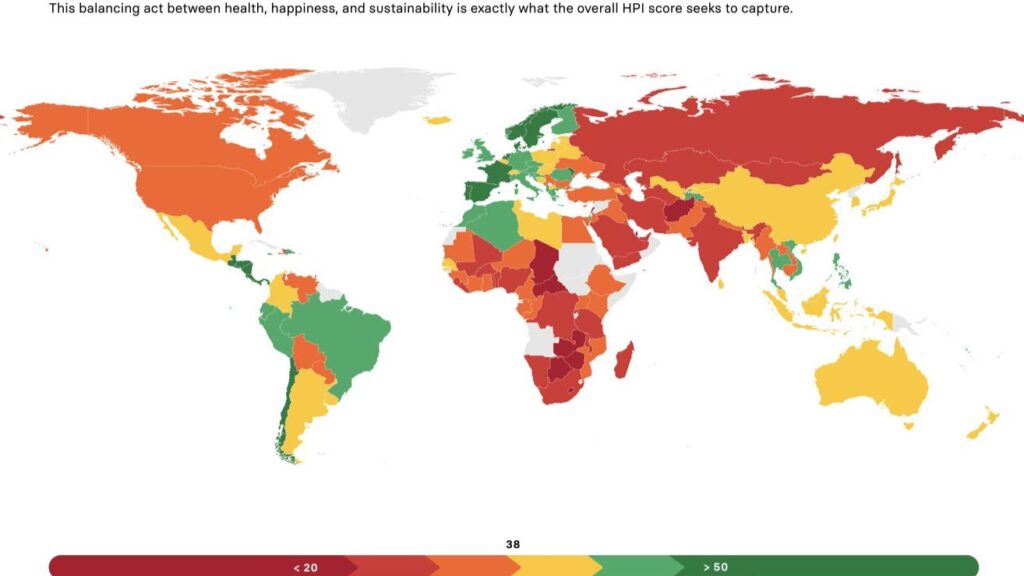Housing is a gravely overlooked issue, especially by a lot of conservatives who support liberal economic policies. Yet, we cannot credibly talk about demography and supporting families without advocating for stable housing, especially for young people with narrowing opportunities. The data show that a housing crisis is unfolding in the West, including Hungary, and the question arises: how can the values of family and nation be passed down to the next generation if it has no roof over its head.
Housing prices in Europe rose an average of over 40 per cent between 2010 and 2023. This might seem like not much, but the distribution of the extent of the increase is uneven, as countries in the CEE region have seen an over 120 per cent of growth in house prices, while rents have gone up by more than 50 per cent; construction prices are also sharply rising. The US is no different: people spend unreasonably high proportions of their salaries for housing, and a shortage of houses make prices irrational. The fact that in most countries the increase in wages did not follow this trend, makes one group increasingly exposed: young people.
The main reason why our youth is especially harmed by the housing crisis is a combination of high demand and low solvency.
Young people leaving the public education system who come from less affluent backgrounds may start working or go into vocational training, thus starting to earn a wage, but their families are not in a position to finance separate housing for them. They can also choose to attend higher education—a path that is longer, but which promises better wages and living conditions later in life. In this case, however, support from parents is usually directed towards their studies, covering their costs of living and tuition fees for that period. In both cases, the number one challenge for young people is to lay the foundations for their adult lives.
This of course is a natural challenge for youth anywhere from which they cannot be sheltered. However, when the costs of housing disproportionately rise, the natural way of ‘gaining independence’ from parents and starting an own life become less of a mission and more like a mission impossible—or a distant dream. The result of this is that an ever growing number of young people are stuck in either what we call the ‘mama hotel’ in Hungarian (meaning Mum’s hotel, a phenomenon not unknown in many Western European countries and the US), or in a small, rented flat, full of uncertainty and a lack of perspective about how they could step up on the so-called ‘housing ladder’.
There are two consequences of this that are especially relevant from a conservative viewpoint: 1) young people will have fewer children, 2) be more likely to emigrate, and 3) be more likely to support radical leftist agendas. Let me explain these arguments.
Family is one of the core values of modern conservatism, viewed as not only the prime unit of society, but also the basis of maintaining our civilisation. Although there are different ideals and values concerning the family as such, which indeed has importance, the final goal of conservative politics should be to support strong, prolific families that prosper in physical, mental and spiritual stability. All of them are necessary. And even if we argue that huge wealth is not a precondition for strong families—indeed, love can be strong in deprivation, too—but there is no stable family without a stable home.
When it comes to material abundance, there are huge contradictions in the 21st century. Western market economies are progressing in a way that, while even the poorest have access to food, services and other possessions that peoples of the past would envy as luxuries, yet the most basic needs—like housing or a healthy environment—are increasingly uncertain and access to them becomes less and less equal. New generations are expected to have a lower level of welfare compared to their parents, and a new type of human being has now evolved: the young person, sitting in a mall wearing costly shoes, chewing snacks and reading news on the latest iPhone—living through an existential crisis with uncertain jobs and no hope of ever saving up for their own house.
Of course, blame can be put on young people for not having dreams or self-discipline and instead pursuing a hedonistic ‘carpe diem’ approach to life. There is some truth to all that. However, systemic questions like the quality and price of education or a lack of access to housing cannot be overlooked. Especially the prices of real estate and rents highly influence one’s ability to make long-term plans, establish stable relationships and start a family.
The social consequences of the housing problem can be grasped if
we look at the difference between how many children people have (fertility rate) and how much the actually want (desired number of children),
and count the difference between the two. Further analysis can be made on the effect of the housing crisis on young people emigrating from one country to another in Europe, especially from CEE countries like Hungary, which has a double effect on demographic issues.
As conservatives, we often tend to emphasize individual morals and responsibility, while neglecting the effects of the environment on one’s behaviour, and our common responsibility to shape that environment. But in fact, both are equally important when it comes to social issues. I am convinced that unfavourable trends in demography simply cannot be reversed without solving the housing crisis, period.
Usually, when a significant social crisis that affects a majority of a social group remains unresolved, that group turns to political extremes. Young people—and I am writing as one of them—are especially vulnerable to extremism, since our task is not to conform politically but to learn and be open to new thoughts. This process—contrary to what many think—is positive, as it is a way of growing up, and introducing innovations in social and political thought. With guidance from the older generations, this results in gradual reforms and what I call ‘conservative development’. However, when political externalities interfere with this process, young minds may be morally corrupted and detached from reality.
This is the case, inter alia, when young people are deprived of fundamental opportunities, such as establishing their homes. A ‘moral abandonment’ of generations Z and Alpha (by morally abandoned Gen Y parents), which I have no space to detail here, combined with the hardships of starting adult life, bring forward the quarter-life crisis of youth. This common experience makes an impression that older generations have failed them, inhibiting transgenerational dialogue and transmitting fundamental values.
To the contrary, far-fetched ideals of social justice and progress may seem to be appealing, offering simple solutions to the dilemmas young people face. At this point, conservative rhetoric and moral criticism may seem in their eyes no more than a cynical clamour from old people, discredited or even malicious. That is how the progressive–conservative divide enters the generation gap.
Of course, this is simplification to some extent. But it underpins the need for care and support from society to the youth from all socio-economic backgrounds, for them to be able to fight their battles and successfully start their life.
What needs to be done? A progressive response may be universal income or free housing, solutions which are neither sustainable nor desirable from a conservative perspective. In fact, the problem of housing is much more complicated and specific to each country. However, a common discernment may be that the real estate market is unable to function in a self-regulated way regarding demographic and other important objectives.
Society viewed as a community—and its institutions and the state—should have a role in supporting the creation of affordable housing for young people.
In Hungary, for example, tremendous efforts have been made to give favourable loans subsidized by the state to support young married couples, combined with the reduction or complete forgiveness of their debts should they have more children later. Although these measures favoured primarily those coming from the upper middle class, and not those in huge need, yet they are a good start, and have arguably contributed to an increase in fertility, giving chance to hundreds of thousands of people.
However, another good way forward could be the construction and lease of council housing, allocated to applicants on a needs and income basis, with reduced rental costs on certain terms (e.g. for a limited time, only to those who are studying or are employed, and based on the number of children). Although it is not the best solution from the point of view of ownership, it may be a good way for young people to start their lives, save up money and step up on the housing ladder later on. Whichever solution fits best, public efforts need to be increased, and conservatives should be firm advocates of these measures.
One of the main virtues of conservative thought is that it is a combination of pragmatism and long-standing values, which enables societies to develop and solve their problems from time to time. Besides protecting the family, the nation, and Christianity in an abstract way, we should also take a serious look at the actual problems and circumstances that shape social behaviour and prefer long-term solutions to momentary success. Without investing in our youth, and leaving the housing crisis unresolved, our demographic goals cannot be realized, and generational and political divisions will only deepen.








